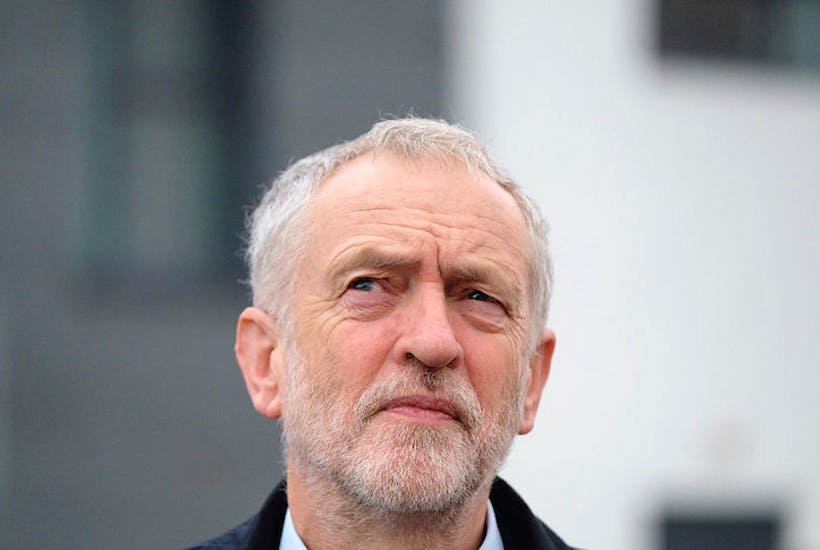For Jeremy Corbyn and his allies, there has been no far-left takeover of the Labour party or its governing National Executive Committee. It’s true that, this week, Corbyn supporters came to control the majority of the NEC, completing their command of the party apparatus. But they see this as getting rid of the last of the right-wingers and enabling — for the first time — the Labour party to dedicate itself to the interests of the working class. It’s not the triumph of a fringe, they say, but the expulsion of a fringe. The Corbynite agenda of government expansion, mass nationalisation of railways, utilities and more, can now be pursued.
Those still laughing at all that have not been paying attention. Mr Corbyn was quite correct, in his party conference speech, to say that his proposals are mainstream. When pollsters ask, they find clear majority support for the renationalisation of water, electricity and gas. Even among Tory voters, a majority support rail nationalisation. What about the privatisation of other services? A good case against that is being made by the collapse of Carillion, which ran everything from school canteens to the security at military bases. Its insolvency will soon be used as prima facie evidence of private sector incompetence.
Sir Keith Joseph, born 100 years ago this week, famously drew a distinction between the ‘centre ground’ of Westminster — the consensus among MPs — and the ‘middle ground’ that a party ought to share with the public. His words are often quoted by Tories to remind themselves that concern about European Union membership and immigration was quite widespread even if sneered at in London. But it is Labour that has learned Joseph’s lesson. Jeremy Corbyn’s argument is that his ideas, dismissed as fringe in Westminster, were not populist but popular. The last general election proved his point.
It’s hard for a political party to go from obscurity to power, as the Westminster voting system tends to protect incumbents. Momentum, a group that did not exist four years ago, has instead succeeded in taking over a party: the leadership and the membership. The NEC changes mean Momentum’s reverse takeover of the Labour party is now complete, and Labour MPs are now its hostages. MPs who complain about hard-left takeover will be told that this is not ‘entryism’ but simple democracy — which it is. Momentum found and inspired thousands to join the Labour party and call the shots. It deserves its victory.
In the general election, Corbyn increased his party’s share of the vote more than any other leader of any other postwar party. He is now entitled to remake the Labour party in his image, just as Tony Blair once did. Just where this leaves Labour moderates remains to be seen. Now that the Corbynites have control of the National Executive Committee, they can force all MPs to be re-selected by their local party members — rather different members, given the Corbynite influx. Their only hope is that Corbyn keeps them on the grounds that a purge would be a distraction and that he already has the terms of their intellectual surrender.
Of course, it’s not impossible that the Labour moderates will discover the backbone they’ve been missing since the start of all this debacle. Some might resign the whip for reasons of principle. Hugh Gaitskell once spoke about the need to ‘fight, fight and fight again’ for the party that you love — but it’s far from clear that anyone loved the post-Gordon Brown Labour party enough to fight for it. There has been serious talk about Labour moderates going elsewhere. Whether this evolves past talk remains to be seen.
At first, such talk delighted Conservatives. Now, it terrifies them — or ought to. For years, they have been dismissing Corbynism on the same logic as the Labour moderates: that it is the agenda of a bunch of obsessives with no national support. Blairites would argue that Britain is fundamentally a capitalist country — but this is untrue. It’s neither capitalist nor socialist, but a nation with plenty of support for both. Victory tends to go to the party that makes its case best.
This is why Carillion matters to the Tories. It collapsed because several of its projects became a lot more expensive. When a government project suddenly becomes unexpectedly costly or is extremely delayed — see HS2 or the Hinkley Point C nuclear generator — the taxpayer picks up the bill automatically. In the private sector, there is (or ought to be) no bailout. Failure is not just more likely; it is also more visible.
Under Corbyn, though, it would not be private contractors going bust, it would be the state itself. The bill for his renationalisations would never be covered by revenue, as he pretends. They would be a calamity, but the Conservatives seem reluctant to make that point. First, because they thought it was obvious. Now, because they don’t know how.
At first, Labour moderates saw Corbyn as a harmless crank. Now, they cannot find an answer to him. This is what happens when politicians forget how to make an argument and rally people to their cause. The Conservatives should take note.






Comments